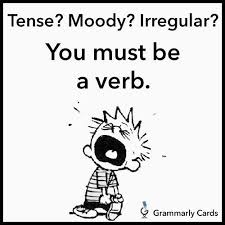
For example, sometimes DIFFERENT letters make the SAME sounds, like: “Daisy is in great shape.”
But at other times, the SAME letters make DIFFERENT sounds, like: “Eat bread & steak.”
So it is with the /-ed/ at the end of many verbs. In fact, you can put regular verbs into the past tense by just putting an /-ed/ at the end. It’s like this:
We play today. We played yesterday.
The problem, though, is the pronounciation of that /-ed/. In fact, there are THREE ways to say it, based on what word it is in. Let me explain; there are three rules.
Rule 1: If the base word ends with a /d/ or /t/ SOUND, add an extra syllable so that the word ends with the /-id/ sound. (NOTE: Some English words end with the /d/ or /t/ SOUND, but that is not that actual letter. For example, “hate” ends with an /e/, but the /t/ sound.
hated (hate-id)
wanted (want-id)
painted (paint-id)
ended (end-id)
decided (decide-id)
suggested (suggest-id)
started (start-id)
completed (complete-id)
repeated (repeat-id)
budgeted (budget-id)
Rule 2: If the base word ends with the sounds “p,” “f,” “s,” “x,” “ch,” “sh,” or “k,” then the word ends with the /t/ sound. Again, be careful. The word “promise” ends with the letter “e,” but it ends with the /s/ SOUND. “Laugh” ends with the letters “gh,” but it ends with the /f/ SOUND.
hoped /t/
laughed /t/
based /t/
faxed /t/
watched /t/
washed /t/
liked /t/
talked /t/
walked /t/

Rule 3: This is the easiest rule of the three; all other sounds end with /d/!
played /d/
cried /d/
cleaned /d/
grabbed /d/
allowed /d/
mentioned /d/
Do you need help with your English? Many students tell me, “I want to be able to speak English fluently like an American, so that’s why I take classes with DreyerCoaching.com.” With our all-American, professional teaching team, we can help YOU sound better and better when you speak English! Find out more here. Contact Scott today to find out how we can help you!
Sources: https://www.perfect-english-grammar.com/how-to-pronounce-ed.html and https://www.englishclub.com/pronunciation/-ed.htm
